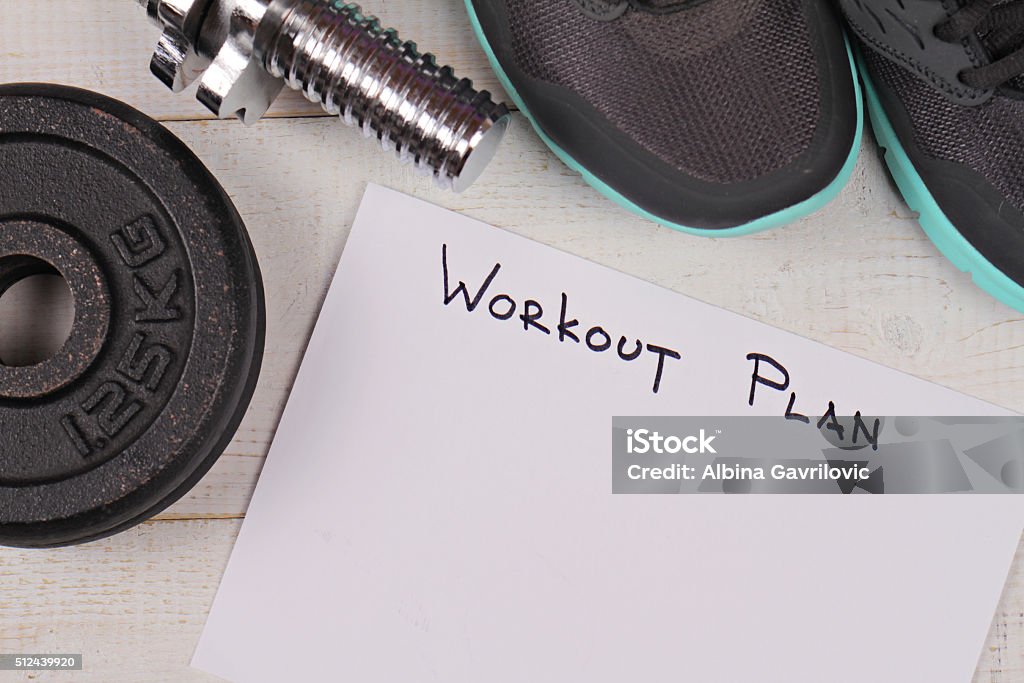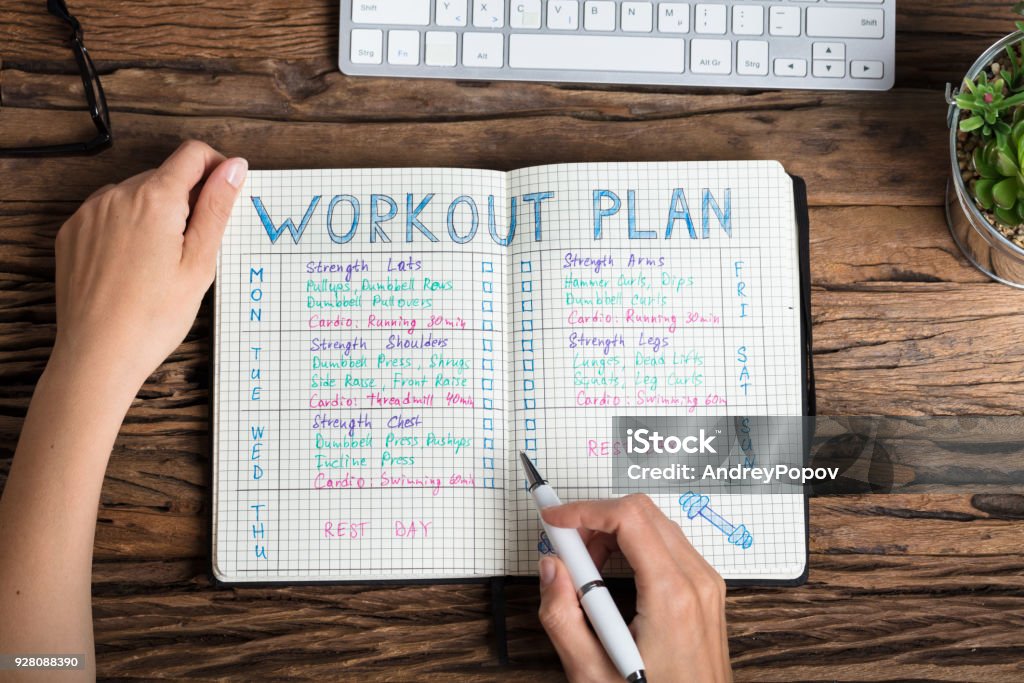A Beginner’s Guide
Starting a fitness journey can feel overwhelming, especially if you’re new to exercise or have struggled with consistency in the past. But the good news is that everyone, regardless of their current fitness level, can make meaningful progress with the right approach. Whether your goal is to lose weight, gain muscle, or simply lead a healthier lifestyle, the key is to start small, be consistent, and gradually build up your fitness routine.
This guide will walk you through the steps of kick-starting your fitness journey in a way that is easy to understand and user-friendly. Let’s dive into the major components of a successful fitness plan and help you get started on the right track.
Set Clear and Realistic Goals
Before you dive into any workout routine or diet plan, it’s essential to know what you’re working towards. Take time to set clear, achievable goals that are tailored to your personal fitness level and lifestyle.

- Be Specific: Instead of saying, “I want to lose weight,” try something more concrete like, “I want to lose 10 pounds in the next three months.”
- Make Them Measurable: Ensure that you can track your progress. For example, “I want to run 5 kilometers without stopping in six weeks.”
- Set a Time Frame: Having a deadline gives you something to work towards and helps maintain motivation.
- Break It Down: Large goals can seem intimidating, so break them down into smaller, manageable milestones. For instance, start by aiming for 3 workouts per week, then increase it to 5 as you progress.
Setting clear, realistic goals helps you stay focused and motivated, making it easier to track your progress and adjust as needed.
Find an Exercise Routine You Enjoy
One of the biggest challenges in staying consistent with fitness is finding an exercise routine that you enjoy. Exercise shouldn’t feel like a chore; it should be something you look forward to.

Different Types of Exercise:
- Cardio (Aerobic Exercise): Running, cycling, swimming, or brisk walking are great ways to boost your heart rate and burn calories. Aim for at least 150 minutes of moderate cardio per week.
- Strength Training: Lifting weights, bodyweight exercises (like squats and push-ups), and resistance bands help build muscle and strength. Try to incorporate strength training exercises 2-3 times a week.
- Flexibility and Mobility: Yoga, Pilates, or simple stretching routines improve flexibility, balance, and range of motion, reducing the risk of injury and enhancing overall fitness.
- High-Intensity Interval Training (HIIT): Short bursts of intense exercise followed by rest periods help burn fat and improve endurance in a short amount of time.
The key is to mix things up until you find the type of exercise that excites you. Whether it’s joining a fitness class, working out at home, or jogging in the park, doing what you enjoy makes it easier to stay consistent.
Start Slow and Build Gradually
Many beginners make the mistake of jumping into an intense workout routine right away. This can lead to burnout, injury, or discouragement when results don’t happen overnight. Instead, start slow and gradually increase the intensity and duration of your workouts.
How to Ease Into Your Fitness Routine:
- Begin with Basic Movements: Focus on foundational exercises that help improve strength, balance, and coordination. For instance, bodyweight exercises like squats, lunges, and planks are excellent for beginners.
- Increase Activity Over Time: Start with shorter sessions (20-30 minutes) and slowly add more time as your endurance builds. You don’t need to hit the gym for hours; even a 10-minute workout can be effective if you’re consistent.
- Listen to Your Body: Pay attention to how your body feels during and after exercise. It’s normal to feel sore, especially when starting out, but sharp pain or discomfort is a sign that you might be pushing too hard.
The goal is to build a sustainable habit. Remember, consistency is more important than intensity, especially in the beginning.
Focus on Nutrition
Exercise alone isn’t enough to reach most fitness goals. Your diet plays a crucial role in fueling your body, aiding recovery, and helping you achieve your fitness targets.

Basic Nutrition Guidelines:
- Eat Whole Foods: Focus on whole, minimally processed foods like fruits, vegetables, lean proteins, whole grains, and healthy fats.
- Balance Your Macronutrients: Aim to have a good balance of carbohydrates (for energy), protein (for muscle repair), and fats (for hormone balance and energy).
- Stay Hydrated: Water is essential for every function in your body, especially when you’re exercising. Drink at least 8 glasses of water per day, more if you’re active.
- Portion Control: Watch your portion sizes, especially with calorie-dense foods like nuts, oils, and sugary snacks. Eating too much, even of healthy foods, can sabotage your goals.
If you’re unsure where to start with nutrition, keeping a food diary or using an app to track your intake can be a helpful tool.
Create a Schedule and Stick to It
Consistency is key to any successful fitness journey. Creating a workout schedule and sticking to it will help you stay on track and build a habit.

Tips for Sticking to a Schedule:
- Set Aside Time Each Day: Whether it’s early in the morning or after work, choose a time when you’re least likely to have conflicts.
- Start with Small Commitments: Don’t try to work out for an hour every day if you’re new to exercise. Start with a 20-30 minute session 3-4 times a week, then gradually increase the frequency.
- Track Your Progress: Write down your workouts, take photos, or keep a journal of how you feel each day. Seeing your progress, no matter how small, will keep you motivated.
Remember, it’s okay to miss a workout here and there. The goal is to make exercise a regular part of your routine, not a punishment or chore.
Get Enough Rest and Recovery
Rest and recovery are just as important as the workout itself. Overtraining can lead to injuries, fatigue, and burnout, so it’s vital to give your body the time it needs to repair and strengthen.

Recovery Tips:
- Get Enough Sleep: Aim for 7-9 hours of quality sleep each night to help your body recover and rebuild.
- Rest Days: Schedule rest days to allow your muscles to repair. This doesn’t mean you have to be completely inactive; light activities like walking or stretching are still beneficial.
- Listen to Your Body: If you’re feeling particularly sore or fatigued, it’s okay to take an extra rest day. It’s better to take time off than to push through pain and risk injury.
Find Support and Accountability
Starting a fitness journey alone can be tough, but having support makes a huge difference. Whether it’s a workout buddy, a fitness class, or an online community, having people who encourage and motivate you is key to staying committed.

Ways to Find Support:
- Workout Buddy: Find a friend with similar goals to work out with. Not only does this make exercise more enjoyable, but it also keeps you accountable.
- Join a Class or Group: Group fitness classes are a great way to meet people and stay motivated. Plus, they provide structure and guidance from a professional instructor.
- Online Communities: There are many online fitness communities where you can share your progress, ask questions, and get support from others on the same journey.
Celebrate Your Progress
Finally, don’t forget to celebrate your wins, big or small. Reaching milestones, whether it’s losing a few pounds, lifting heavier weights, or just feeling more energetic, deserves recognition.

Ways to Celebrate:
- Reward Yourself: Treat yourself to something non-food-related when you reach a goal, like new workout gear or a relaxing massage.
- Reflect on Your Journey: Take time to reflect on how far you’ve come, even if you’re still working toward your ultimate goal. Progress is progress!
Conclusion
Kicking off your fitness journey doesn’t have to be daunting. By setting clear goals, starting slowly, and focusing on consistency rather than perfection, you can build a routine that fits into your lifestyle and leads to long-term success. Remember, it’s not about how fast you get results but how sustainable your approach is. Enjoy the process, find what works for you, and stay motivated by celebrating your progress along the way.
The journey of a thousand miles begins with a single step – so take that step today!